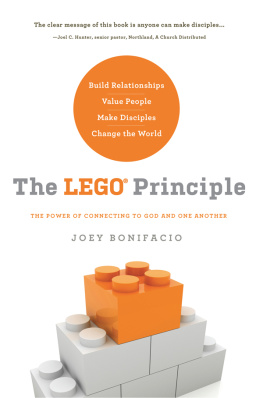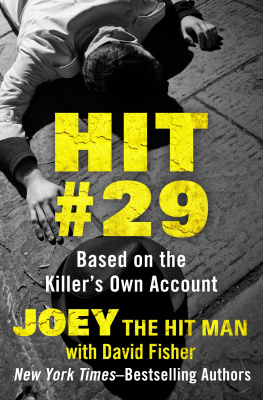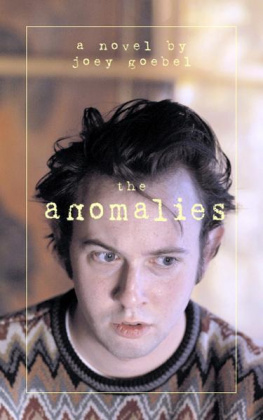
The fourth book in the Victor Carl series, 2004
For Martin and Rosalie
Chapter 1
THERE IS SOMETHING perversely cheerful about a crime scene in the middle of the night, the pulsating red and blue lights, the great beams of white, the strobes of photographers flashes. Festively festooned with yellow tape, a crime scene at night is a place cars drive slowly by, as if before an overdone Christmas display with bowing reindeers and whirling Santas. In the uniformed workers busily going about their business, in the helicopters spinning madly overhead, in the television vans with their jaunty microwave disks, in the reporters giving their live reports, in the excited onlookers excitedly looking on, in all of it lies the thrilling sense of relief that the arbitrary finger of desolation has squashed flat this night a total stranger.
Unless the corpse within the tape is not a total stranger. Then, suddenly, the crime scene at night is not so cheery.
I didnt yet know why I had been summoned to the crime scene at Pier 84 on Philadelphias dank waterfront, or whose death was the subject of this swirl of activity, but I knew the deceased was not a total stranger or I would never have been called, and that was enough to turn the cheeriness of the scene into something bleak and icy. The possibilities flitted through my mind like bats through a dusky sky, an endless swarm, each swoop or swerve carrying its own name and causing its own jolt of fear.
I was called by McDeiss, I told one of the uniforms standing as solid as a Roman sentry at the gated entrance to the pier, his arms crossed, his thick leather jacket zippered tight. Far behind him, lying between two huge shipping containers, surrounded by cops and technicians, slipping out of a strange dark puddle, was a lump of something covered by blue.
You a reporter? said the cop.
Im a lawyer.
Even worse. Yo, Pete, he called out to a young cop standing a few feet away. Whats more trouble than a lawyer?
Two lawyers, said Pete.
Go tell Detective McDeiss to hold on to his wallet, theres a lawyer here to see him.
Who died? I managed to get out.
Talk to McDeiss.
What happened?
Some guy got an early good-night kiss.
Until then I hadnt known if the victim was man or woman, now the possibilities narrowed. Half of the swooping bats dissolved and disappeared, yet that didnt seem to help at all.
The pier was a flat sheet of cement, jutting out into the wide, slow Delaware River, just north of the Walt Whitman Bridge. Rail lines crisscrossed its length and an arcade-style warehouse squatted in its center, with trailers hitched at the bays in front like puppies sucking milk from their mothers teats. Chocolate milk, because Pier 84 was the primary cocoa-receiving facility in the entire country. On Pier 84, burlap sacks, unloaded from heavy cargo ships, were thrown into shipping containers and hauled by rail and truck to the gay little chocolate town of Hershey, Pennsylvania. You would expect you could smell the sweet rich flavor of the chocolate even on the pier, but youd be wrong. All you could smell that night was the wet of the river, the oxide of rusting metal, and something dark and desolate and sadly familiar beneath it all.
The warehouse now was in shadow, the river itself a thick black void. At the entrance to the pier, brown and low, squatted Franks, a lunch shack with tables out front and a blue sign reading: COLD BEER. To my right was the great steel bridge named after America s most American poet. I hear America singing, yeah yeah yeah. Not tonight, Walt, not with all the racket from the helicopters, not with that lump of something beneath the blue tarp. And to my left, the oddest sight, the red tilting stacks of what appeared to be a great ocean liner fallen on hard times. The red paint on the funnels was streaked and flaking, the metal was rusting, the lighting was desultory at best, making it seem as if the great ship was sagging in the middle like a tired old horse. It looked as if it had suffered some foul disease and had crawled into the Philadelphia waterfront to die. Well, it had picked the right place.
This visit to Pier 84 was for me the start of the strange case you read about in the papers, the one with the Supreme Court justice and those pictures of the naked woman, the one with the dead client and the kidnapped lawyer and the rotting old ship and the ghost reaching back from the dead to exact his revenge. That one, remember? But for me it wasnt yet a headline, it was just a call in the night that had sent me scurrying to the waters edge, and so the strange sight of that rotting old ocean liner was just that, a strange sight, nothing more. A fading remnant of a far brighter past, it sat there, dead in the water, like a warning I couldnt yet hear.
Victor Carl, came a rich voice from within the cordon of the yellow tape. Why am I not surprised when your name comes floating up in the middle of a god-awful mess? Let him in, Sal.
The cop with the crossed arms stepped aside.
Detective McDeiss, Homicide Division, was wearing a long black trench coat, a gray suit, a black porkpie hat tipped low. His large hands glowed strangely blue, covered as they were with latex gloves. He was a big man, broad shoulders, thick legs, the cheeks of one who savored his wines and preferred his sweetbreads rare.
Thanks for coming out, Carl, he said. The deceaseds wallet is gone and theres no quick way to make an identification, but lucky us, he had your card in his back pants pocket.
My card?
You sound surprised. You dont toss them to the multitudes?
Just to passing ambulances and old ladies who fall and cant get up. I took a deep breath to steady my nerves, smelt the coppery tang of spilt blood, suppressed a gag.
You all right there, Carl?
I wasnt, not at all, but I turned away from the covered thing on the ground and tried not to show it. So let me get this right, Detective. You have a dead man, you dont know who he is, but he had my card, and you took a flyer on seeing if I could identify him.
If its not too much trouble.
Can I stand back a bit when I do it?
Please. These are new shoes.
McDeiss laid a gloved hand on my shoulder and squeezed before stepping toward the lump of something covered by a blue tarp twenty yards away. The crowd surrounding it stepped back. At McDeisss instruction a sharp white beam was focused on the tarp and the puddle. McDeiss leaned down, grasped the edge of the blue sheet of plastic with his gloved hand, looked at me.
I swallowed and nodded and stepped back still farther as McDeiss lifted the corner of the tarp.
I caught a glimpse, that was all it took, even bleached by the bright white light it took only a glimpse of the face rising out of a thick puddle of dark blood, only a glimpse, and I knew without a doubt. A single bat swooped low, aiming for my head. I flinched and turned away.
Joey Cheaps.
JOEY CHEAPS.
I was sitting in my office, hoping something lucrative would come along and save me from bankruptcy court, when Joseph Parma, Joey Cheaps as he was known in South Philly, phoned. This was that very morning, about ten-thirty, and I wanted to tell my secretary to take a message, but I didnt. What we needed just then was something lucrative and Joey Cheaps was not something lucrative. Joey Cheaps was the opposite of something lucrative. Joey Cheaps was a monetary black hole. When he entered a bank, the share price dropped ten percent. When he walked down the street, parking meters flashed red one after the other. Every time I so much as said his name I lost money. Joey Cheaps. There went five dollars. See? He was a client and he owed me money and that was the only reason I took his call, so I could tell him he owed me money. He knew he owed me money, he didnt need me to tell him he owed me money, and yet still I couldnt help myself. It was that sore tooth thing all over again.
Next page







